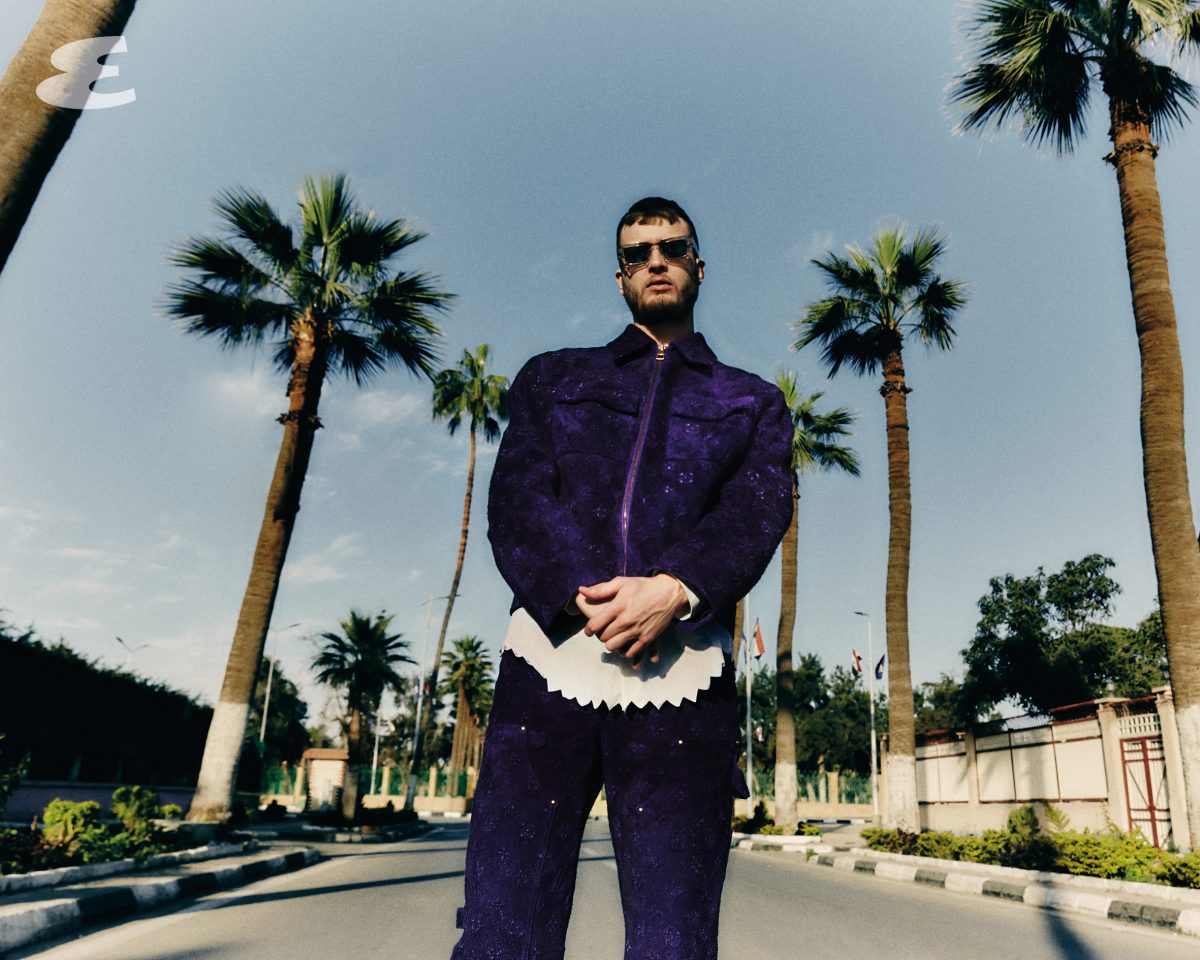When we settle down to talk, Marwan Moussa is in his studio in Maadi, a leafy suburban neighborhood south of Cairo. The studio is in Moussa’s apartment. “It’s just a room,” he says laughing. But the music written and recorded in that room has taken the Egyptian – and by extension Arab and African – rap scene by storm.
His videos on YouTube have been watched 180 million times. On a monthly basis 670,000 people listen to him on Spotify. These are huge numbers. Especially considering Moussa hadn’t made music before 2016. When I say ‘studio’ and those numbers, you might be imagining a complicated set up. But it’s just a Mac Pro, an Apollo sound card, Yamaha speakers and a big curved gamer Samsung screen. “It’s just the bare essentials,” he says. “Exactly what you need.”
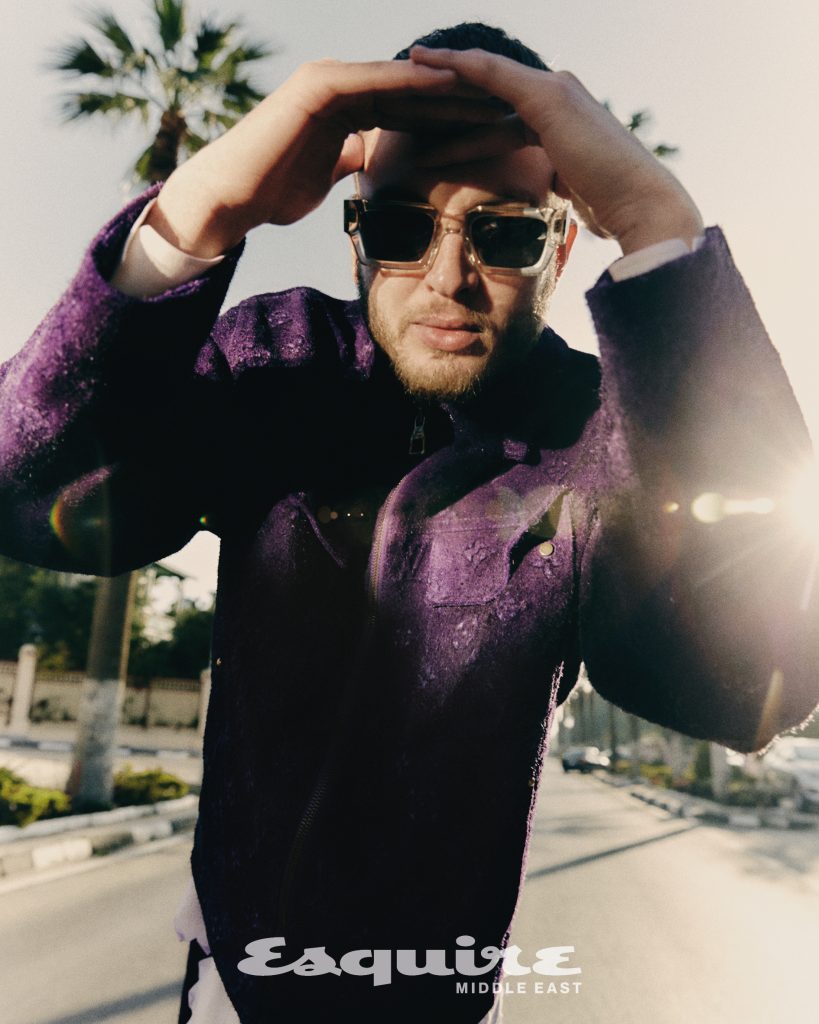
Born to a father from Ismaila, on the bank of the Suez Canal, and a German mother, 28-year-old Moussa doesn’t fit the typical profile of an Egyptian rapper. I ask if he takes heat on social media being a middle class kid in a working class environment. He chuckles. “I get s*** for that. People say ‘oh he didn’t struggle’.”
He says his looks made it even easier to fit him into a stereotype, the fact his mother is German and that DNA is visible. Moussa doesn’t go out of his way to build cred through manufactured toughness. He tells the story of a feud he had a few years back, another rapper was coming at him for ‘being soft.’ Moussa responded the only way he knows how, through his music. “At the end of the day, rap wins. He had this persona, he was being hard. All of that. But he couldn’t write a song like mine.

For Moussa’s Esquire Middle East shoot, we set up shop two hours out of Cairo in Ismailia – with its fish market, famous mango groves and street side cafes. “I grew up in Cairo, but Ismailia was where we spent the weekend,” says Moussa. “As a kid I guess I was just always at home, on the computer in my room. Loner vibes.” He says laughing. It doesn’t sound too dissimilar to what he’s doing right now. He’s made a career out of it. Talking to Moussa, and seeing him on the day of the shoot in the streets of Ismailia, he seems reserved. It’s hard to reconcile with his public persona as a rapper.
“I used to be really outgoing when I lived in Rome,” says Moussa of his time studying film in the Italian capital. “I used to go out a lot. As a person I love socializing. But the environment in Egypt isn’t encouraging for me.” It feels like his incredibly rapid rise to fame – going from unknown in 2016 to millions of fans a few years later – has taken a toll on his ability to enjoy something as simple as going out. “It’s not my comfort zone, so I put it off.” So what does he get up to if he’s not going out? “I love food. I can’t say that I cook. But I’m a food expert! I understand food. I have good taste basically.” I ask if he has a fancy meal he asks for on his rider. He cracks up. “I’m not that type of person. I’m more about eating, analysing what we’re eating. Judging it.”

Moussa studied sound engineering in Los Angeles in one point, but I ask him how he ended up in Rome, which sounds less straightforward. “The honest truth is that I’m such a lazy person. I wasn’t preparing for enrolling in university like a proper person should. Looking at many universities, sending emails, applications. I wasn’t doing that, you know? My friend was in this university. I was too lazy to apply to another university. I just applied to this one and I got accepted. I was like, f*** it.”
He goes on to tell me how he hates admin and booking flight tickets. How does that work with being a touring artist? “I’m a different level of laziness now, I’m better. I can do stuff now.” He says laughing. I might believe that he doesn’t enjoy tedious admin, but I don’t believe for a minute that Moussa is lazy.
Moussa dropped his first track in 2016. “I was just a little guy wanting to make beats and I suddenly found myself with an audience.” Over the previous year, he’d been reaching out to rappers to direct their music videos. He’d been a film student at the American University in Rome after all. “I was also making trash beats at the time. But steadily my beats got better so I started to write.” He collaborated with rappers and soon found himself with a voice and an audience of his own. He compares it, rather improbably, to playing Snakes and Ladders: “I suddenly got a ladder and moved up 17 steps!”
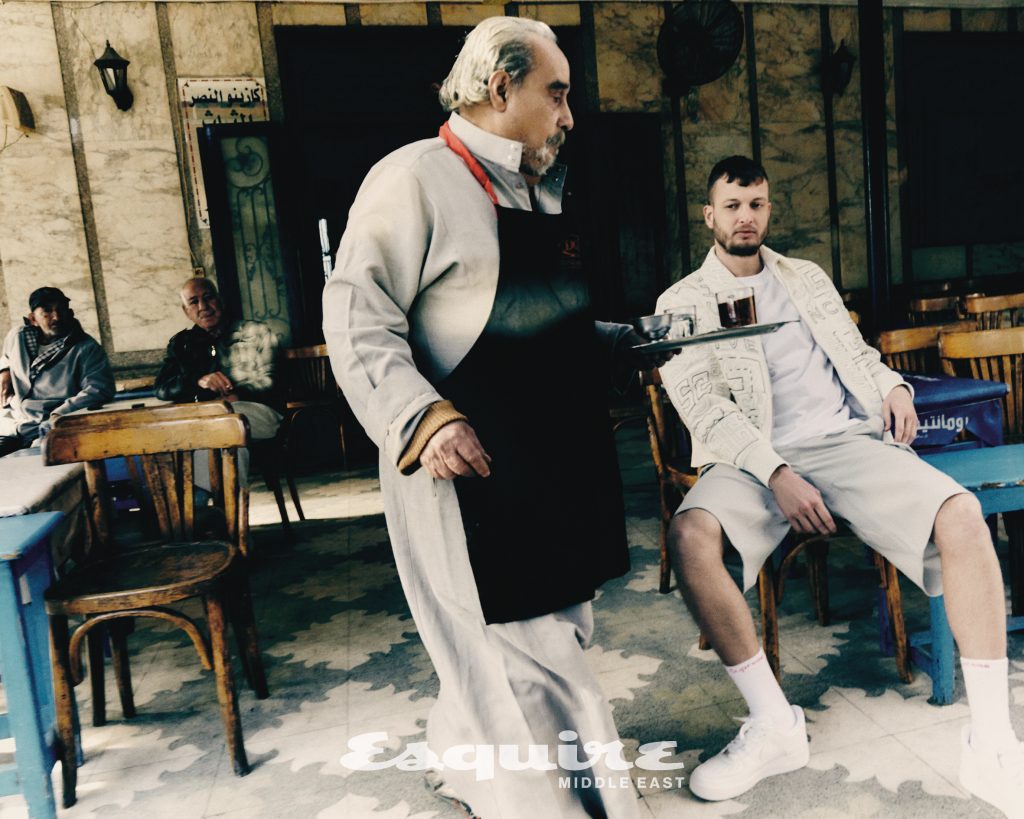
“At the time the rap scene was underground. It wasn’t the way it is now where we’re mainstream. Back then you knew the individual fans,” he says of the then fledgling ecosystem. The relationship was intimate with the audience, and hearing Moussa talk about those early days it’s clear that the palpable support he got propelled him forward. The rap scene around him has grown tremendously, with figures such as Moussa and his contemporaries Wegz and Marwan Pablo dominating charts and finding a home for their music across the Middle East, Africa and beyond.
“When I heard Egyptian rap music done well for the first time I was like ‘wow’ because we heard so much of it done badly. Everyone’s experience had been that Arabic rap is bad. Right? That was everyone’s experience from, like the year, 2000 until recently” says Moussa. “Rap music really has a lot of things that match the Arab vibe, or the Egyptian vibe to be more specific. That persona. Because rap music is about ego. It’s your toxic egotistical self. That’s why people love to listen to it, because it allows them to feel the true thing that they’re feeling. It’s a confidence boost.”
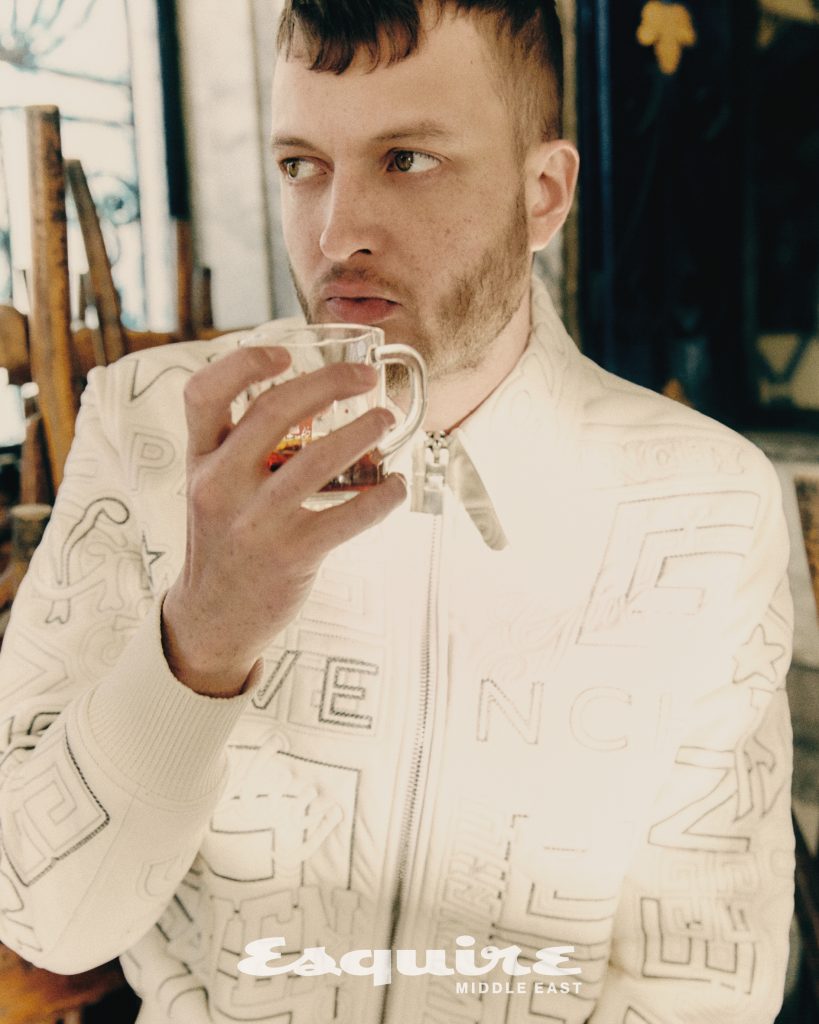
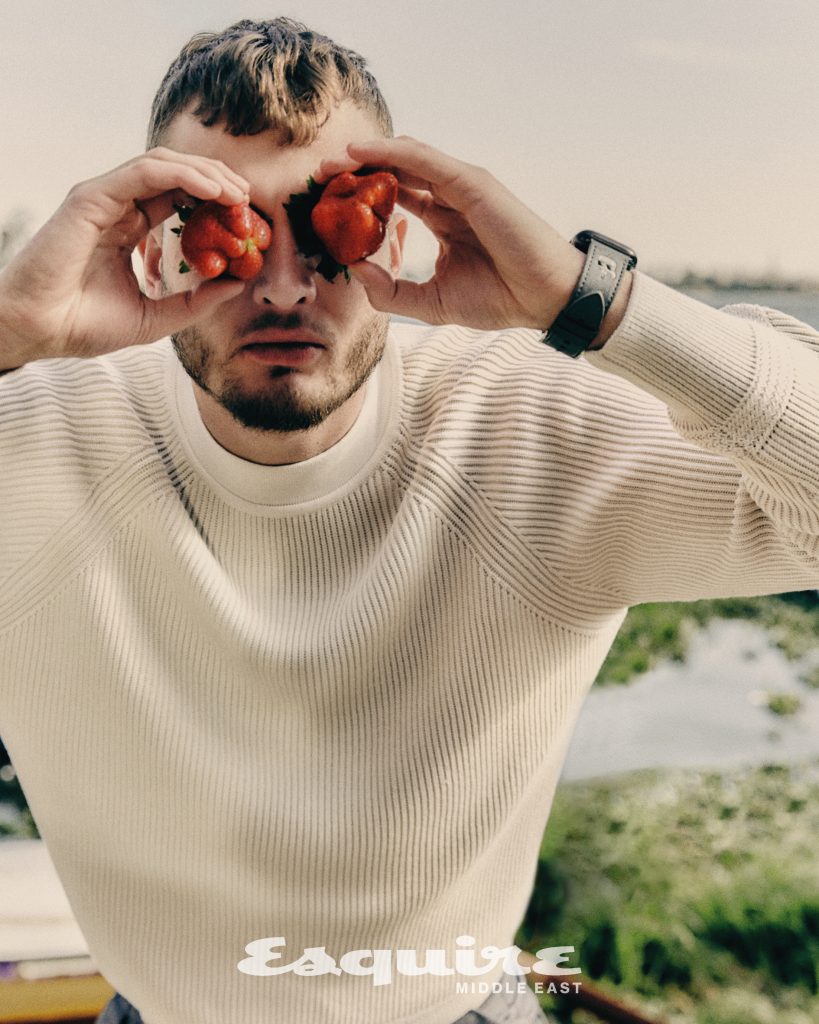
Marwan Moussa’s lyrical style is sharp but also playful. There’s a visual playfulness to his music videos as well. Take the video for the song ‘Tesla’, which sees Moussa rock up to a prison in his vintage BMW, get locked up, spend his days awaiting death row – while shouting out luxury brands (from Comme Des Garcons to Vetements) and smoking in the yard. As I tell him this he says “You think I’m funny?” without missing a beat in the style of Joe Pesci’s Tommy from Goodfellas. Itself the perfect encapsulation of his quick-wittedness and deep reservoir of pop culture to mine from – a fact also present in his lyrics.
“I love stand-up comedy,” he says. “I love comedy in general. The art of it, being a funny person. I like to cultivate my own humour. It’s an important thing in my life. I always bring into anything that I care about.”
It’s an interesting thing to hear him say. I volunteer that it makes sense, looking at the relationship between the comedy and rap scenes in places like the US, the kinship is clear. “Standup comedians and rappers have something in common, which is that we both tell it like it is. Even if we do it in two completely different ways. They do it by sacrificing themselves. We do it by doing the opposite – being complete ego.”

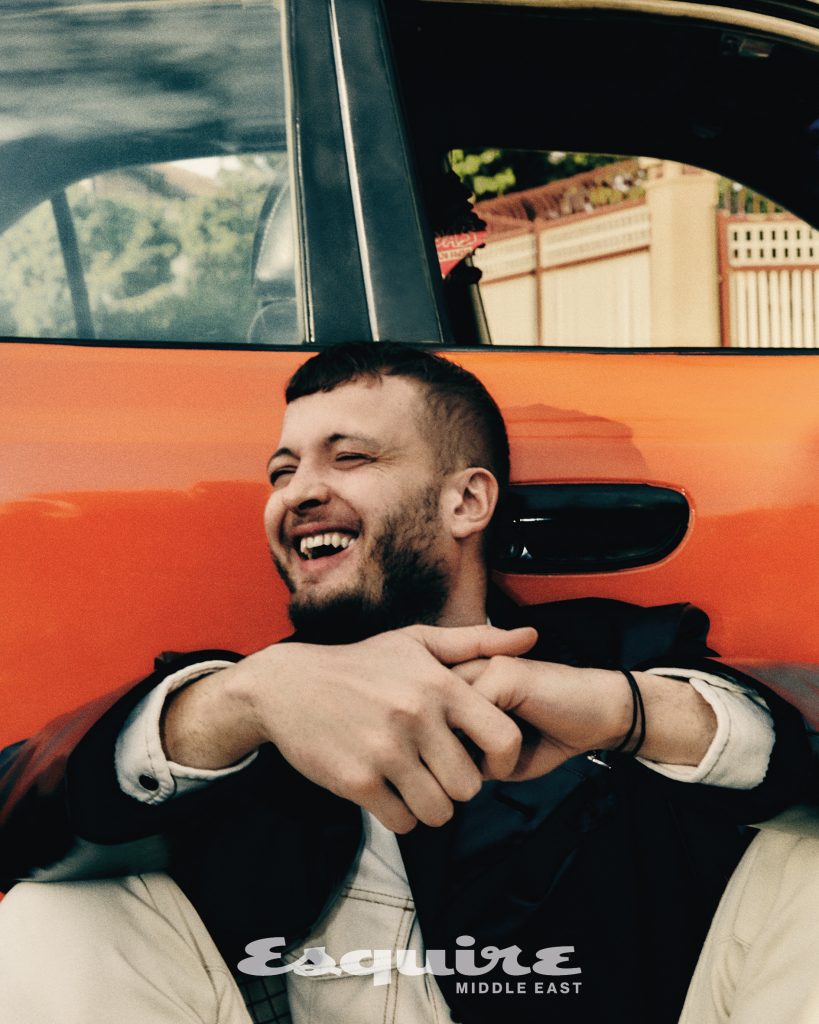
Speaking of ego, how does he fit into the ever-expanding scene in his native Egypt? “The rap scene obviously is going to have problems. It’s a place where everyone who works there, their job is to say ‘I’m the best’. Obviously we don’t like each other,” he says laughing. But even through the fighting words, there’s a sense that he’s mellowed. “In the last year I feel I was able to disconnect my ego,” he says with clarity. “I felt every rapper is a person who has or had self-esteem issues. That’s why we gravitate towards rap so heavily. Like, it helped us escape and mask our own insecurity.”
After a meteoric rise over the past five years, maybe it’s necessary for him to find some peace amid the mayhem. To explain where his head’s at, he walks me through the example of American rapper J. Cole. “He raps and he uses his ego. But at the same time he has these moments where he can just look at himself and question it. That makes rap a very constructive genre. It becomes the opposite of what people say about it. It becomes a solution to ego.”
Still, there must be something inherently stressful in having millions of people waiting for your next track. “The important thing is to not let it affect the process,” he says. “I have a certain expectation of a song, and that’s what I’m always going for. I don’t change things based on how someone might react to it. What drives me is that I want to hear how it sounds.”
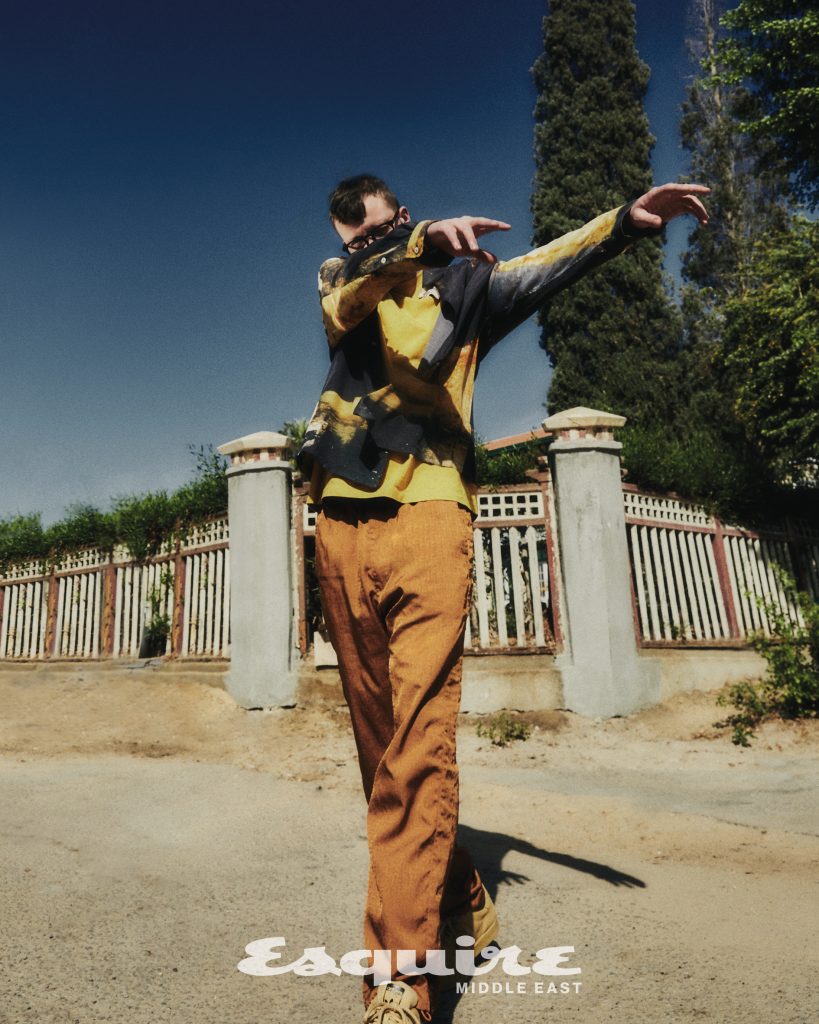
Although he does admit that last summer was the first time in his career he thought about ‘the market’ while making songs. “I took TikTok into consideration, just a tiny bit. It just made me care a bit more about song structure.” To hear him talk about it, it sounds like thinking of the market just made his music tighter. He’s not pandering. He’s growing as a working artist.
“To make a hit record, it takes a lot of things to make it resonate. I feel like you’re calibrating each sensor to make it reach people. It’s a lot of trial and error. But not too much, because at the end of the day it’s music.” Moussa’s thought process and dedication – and work ethic – that goes into his work kind of confirms that his assertion that he’s lazy is possibly slacker branding. You can’t be lazy if you’re doing what he’s doing.
One of the things he’s doing it winning awards. Lots of them. In January, he took home Best African Rapper, Best Breakthrough Artist and Best Artist in African Hip-Hop at the All Africa Music Awards in Dakkar, Senegal. “It means so much to me, because we are part the continent, but we don’t show it enough. We’re not in touch with our African side enough as North African Arabs,” says Moussa.
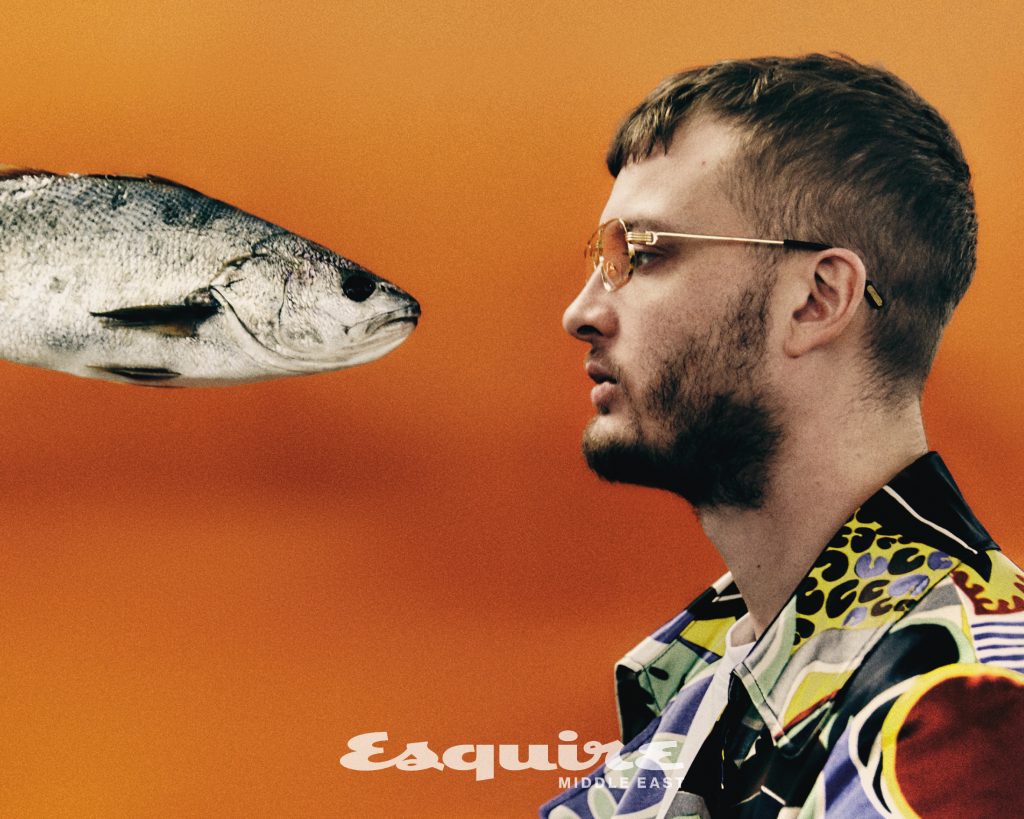
“I feel it’s so rich musically, you’re up against really talented people.” Other big winners at this year’s awards include Nigerian Afrobeats sensation Burna Boy, one of a raft of artists who have ensured that global music charts are now dominated by artists from Latin America, Africa and Asia. I wonder if Moussa sees himself as part of that movement. Is he going global? “You know what they say: never reveal your plans!” he says jokingly. Which means ‘yes’.
“I speak different languages. I’ve travelled a lot. I’ve seen different places. So it’s just natural. Not to increase my market or anything. Just for the sake of it. I speak Spanish, Italian, German. I’d love to set myself a task to go to Germany for two months to work on my German, take it to a new level,” he says, sounding whatever the opposite of lazy is. “Maybe I can write in German, collaborate with someone there. New level.”
Besides raking in millions upon millions of views, Moussa’s music videos are both playful and brilliantly scripted and aesthetically coherent. I wonder if he still has that love of film he discovered while in Rome. “It’s funny you ask. That’s what’s on my mind right now. I’m thinking of directing a lot these days. Not right now. But there’s a film in my head I want to see.” He describes a kind of Egyptian Goodfellas. I don’t know when he’ll make it, but you can be sure of one thing: the soundtrack will be wild.
Credits
Talent: Marwan Moussa
Photography: Amina Zaher
Styling: Laura Jane Brown
Film by: Bassem Eldabour
Grooming: Lina Abosreea
Production: Digitent World
Senior Producer: Steff Hawker
PR: Sound Sauce
Cover look: Louis Vuitton
Read our full Marwan Moussa cover story in the February issue of Esquire Middle East

